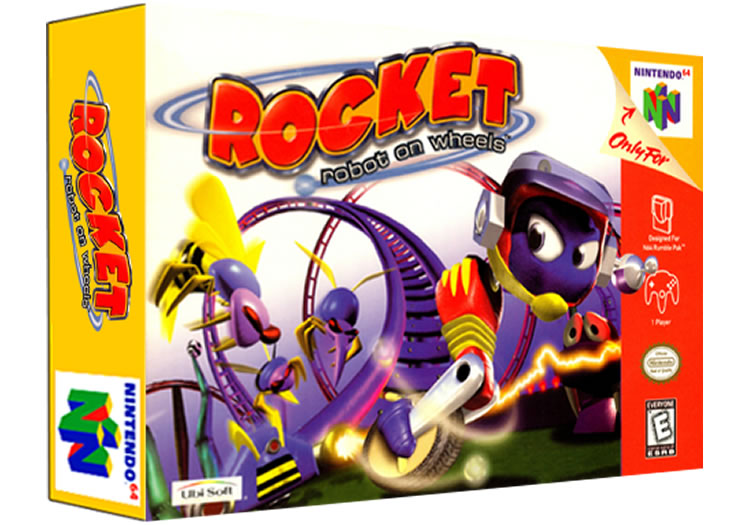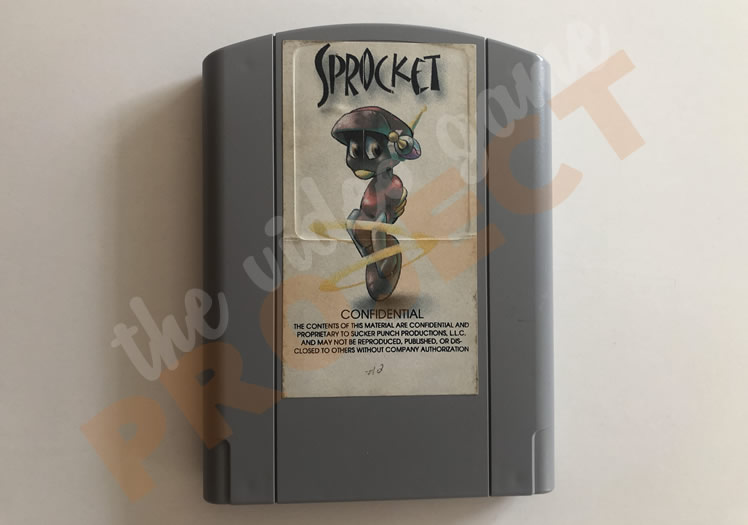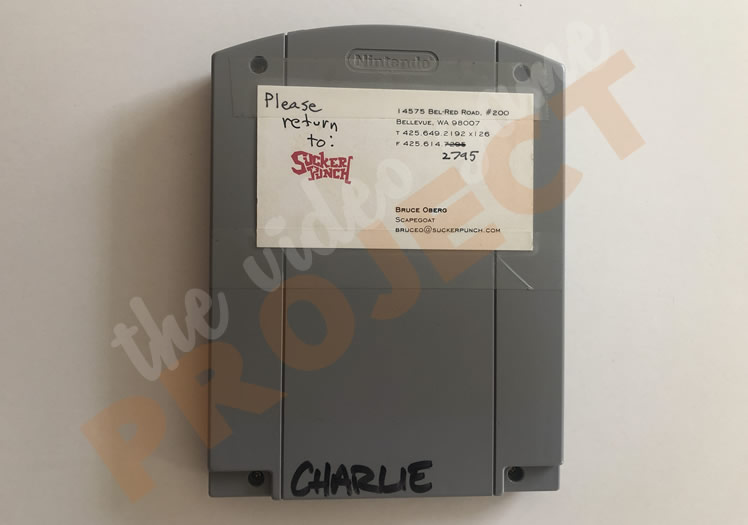The Video Game Project
A Closer Look At The Prototypes That Became Your Favourite Games!
Rocket - Robot on Wheels
 Rocket: Robot on Wheels is a platformer video game developed by Sucker Punch Productions and published by Ubi Soft for the Nintendo 64. The game was released in North America on October 1999 and in Europe later in December of the same year. It was the first game developed by Sucker Punch and in it the player takes control over Rocket, the titular robot. Rocket: Robot on Wheels is notable for being the first game on a home platform to use a realistic physics engine to drive the gameplay. The player is required to solve puzzles dealing with mass, inertia, friction, and other physical properties. The game had been developed under the title Sprocket until three months before its release, when it was changed due to a trademark conflict with Game Sprockets.
Rocket: Robot on Wheels is a platformer video game developed by Sucker Punch Productions and published by Ubi Soft for the Nintendo 64. The game was released in North America on October 1999 and in Europe later in December of the same year. It was the first game developed by Sucker Punch and in it the player takes control over Rocket, the titular robot. Rocket: Robot on Wheels is notable for being the first game on a home platform to use a realistic physics engine to drive the gameplay. The player is required to solve puzzles dealing with mass, inertia, friction, and other physical properties. The game had been developed under the title Sprocket until three months before its release, when it was changed due to a trademark conflict with Game Sprockets.
After Sucker Punch's founders left Microsoft and formed the studio, they decided to develop a game for the Nintendo 64. The team went to Nintendo to pitch the game, however they refused them, citing a lack of approval. Without development kits or tool libraries, they developed a prototype of the game using a PC. The developers pitched the prototype to Nintendo and received development kits, however Nintendo refused to publish the game. They spent around a year creating the first level in the game, entirely self-funded and began pitching to multiple developers. Ironically they pitched the game to Sony Interactive Entertainment, who was impressed with it, but they stipulated the game still be released on N64 and later ported to the PlayStation. Nervous about both the concept not being mascot-centric and a potential game being on their biggest competitor's system, Sony declined. They also pitched to Electronic Arts and were on the cusp of breaking a deal, but it would require the game be cancelled and Sucker Punch start anew on a PlayStation 2 title. The team got cold feet over putting a game on the cutting board, so they continued to pitch it. Eventually the team went to E3 1999 to present the game themselves, which landed positive coverage in gaming magazines such as Next Generation, catching the attention of Ubisoft, who finally agreed to publish the game.

Proto - Front
